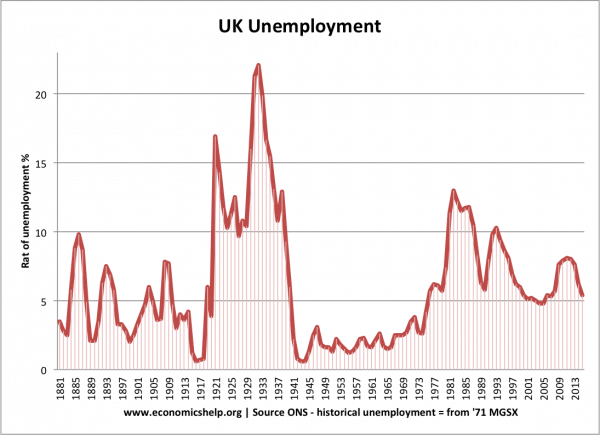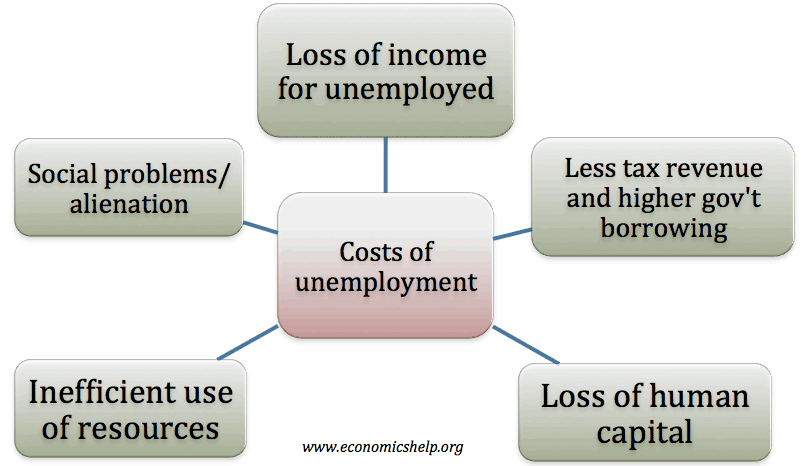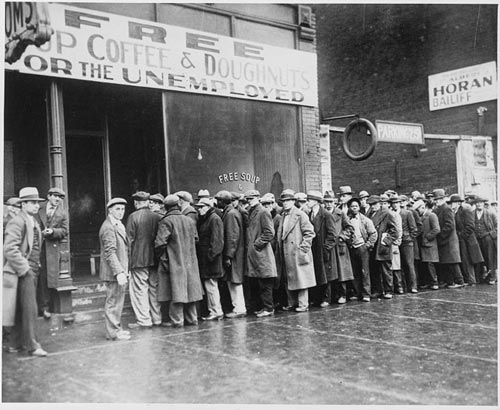The economic and social costs of unemployment include
- Personal costs to unemployed (lost income, loss of sense of value, lower on-the-job training)
- Costs to government (lost tax revenue and higher benefit spending)
- Costs to society in general (social problems, alienation, lost GDP).
Personal Costs of unemployment
- Loss of earnings to the unemployed. Unemployment is one of the biggest causes of poverty in the UK. Prolonged periods of unemployment can push households into debt and increase rates of relative poverty.
- Potential homelessness. Loss of income can leave people without sufficient income to meet housing costs. Rises in unemployment often exacerbate the rates of homelessness. (BBC)
- Harms future prospects. Those who are unemployed will find it more difficult to get work in the future (this is known as the hysteresis effect)
- Lost human capital. If people are out of work, they miss out on ‘on the job training’ This is a vital component of human capital and labour skills; high rates of unemployment can reduce labour productivity. If someone is out of work for two years, they miss out on the latest working practices and trends. Being unemployed can also affect the confidence of the unemployed and they become less employable in the future.
Unemployment and depression/mental health
- Stress and health problems of being unemployed. Amongst studies of unemployed men, signs of depression, mental anxiety, and health problems are noticeably higher. (Effects of unemployment on health (US Library of Health) According to a study by Gallup, “About one in five Americans who have been unemployed for a year or more say they currently have or are being treated for depression — almost double the rate among those who have been unemployed for five weeks or less.”
- Another study found that common outcomes of unemployment include depression, substance abuse, admissions to psychiatric hospitals, death by suicide, and violence. (1)
Cost of unemployment to Government
- Increased government borrowing. Higher unemployment will cause a fall in tax revenue because there are fewer people paying income tax and also spending less (hence lower VAT). Also, the government will have to spend more on unemployment and related benefits. The government doesn’t just pay unemployment benefit, but a family who has unemployment will be more likely to receive housing benefit and income support. One study shows that the cost to the Exchequer for one person being unemployed is £6,243 a year in benefits and lost tax revenue. (Independent)
Costs of unemployment to society
- Lower GDP for the economy. High unemployment indicates the economy is operating below full capacity and is inefficient; this will lead to lower output and incomes. The unemployed are also unable to purchase as many goods, so will contribute to lower spending and lower output. A rise in unemployment can cause a negative multiplier effect.
- Increase in social problems. Areas of high unemployment (especially youth unemployment) tend to have more crime and vandalism. It can lead to alienation and difficulties in integrating young unemployed people into society.
- Political instability. The period of mass unemployment in the 1930s led to social unrest. In Germany, an unemployment rate of 6 million was an important factor in the rise of Hitler and the Nazi party.
Unemployment in the UK

Periods of high unemployment in the UK exacerbated problems of poverty, alienation, and levels of inequality.
Related
- Policies to reduce unemployment
- Benefits and Costs of Unemployment
- Causes of unemployment
- Welfare spending (Unemployment, Job Seekers Allowance cost was £5bn in 2012/13


